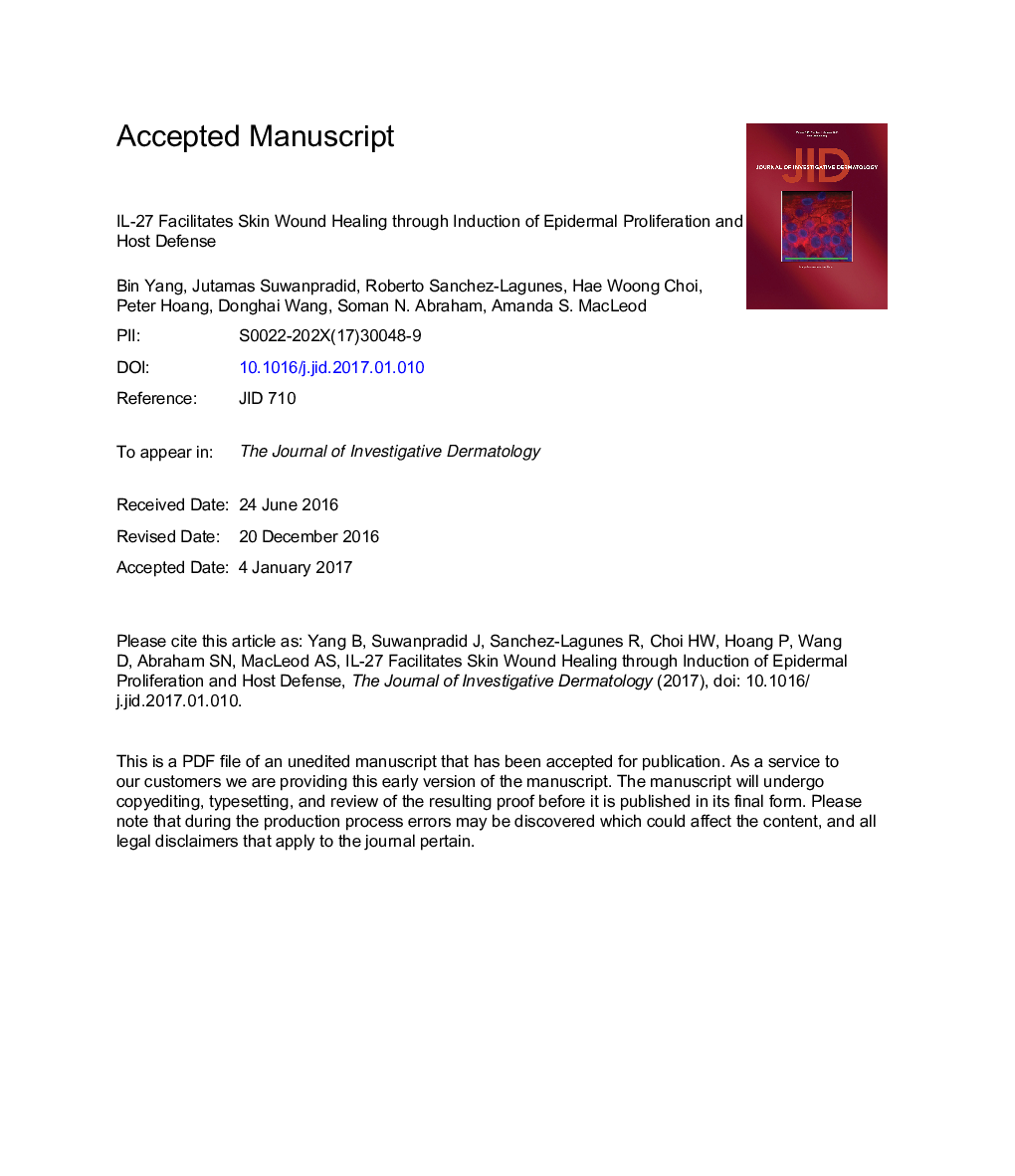| Article ID | Journal | Published Year | Pages | File Type |
|---|---|---|---|---|
| 5649523 | Journal of Investigative Dermatology | 2017 | 38 Pages |
Abstract
Skin wound repair requires a coordinated program of epithelial cell proliferation and differentiation as well as resistance to invading microbes. However, the factors that trigger epithelial cell proliferation in this inflammatory process are incompletely understood. In this study, we demonstrate that IL-27 is rapidly and transiently produced by CD301b+ cells in the skin after injury. The functional role of IL-27 and CD301b+ cells is demonstrated by the finding that CD301b-depleted mice exhibit delayed wound closure in vivo, which could be rescued by topical IL-27 treatment. Furthermore, genetic ablation of the IL-27 receptor (Il27Raâ/â) attenuates wound healing, suggesting an essential role for IL-27 signaling in skin regeneration in vivo. Mechanistically, IL-27 feeds back on keratinocytes to stimulate cell proliferation and re-epithelialization in the skin, whereas IL-27 leads to suppression of keratinocyte terminal differentiation. Finally, we identify that IL-27 potently increases expression of the antiviral oligoadenylate synthetase 2, but does not affect expression of antibacterial human beta defensin 2 or regenerating islet-derived protein 3-alpha. Together, our data suggest a previously unrecognized role for IL-27 in regulating epithelial cell proliferation and antiviral host defense during the normal wound healing response.
Related Topics
Health Sciences
Medicine and Dentistry
Dermatology
Authors
Bin Yang, Jutamas Suwanpradid, Roberto Sanchez-Lagunes, Hae Woong Choi, Peter Hoang, Donghai Wang, Soman N. Abraham, Amanda S. MacLeod,
